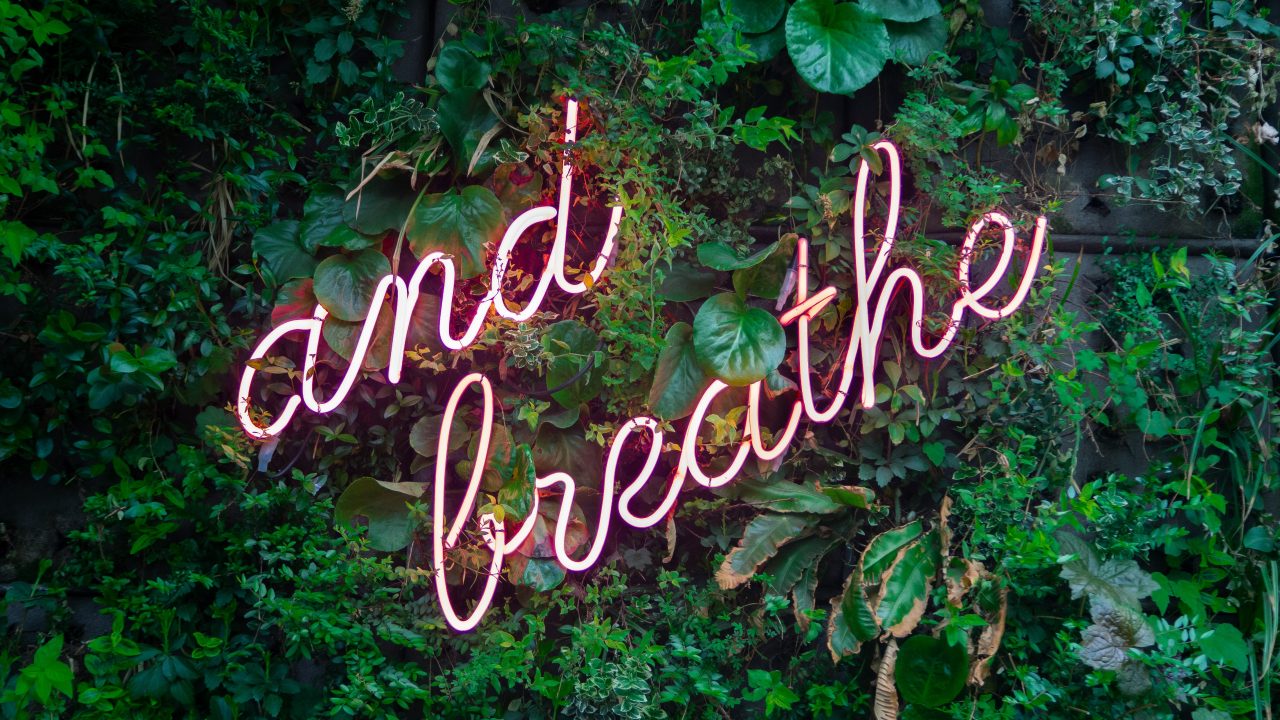Self-care in a Work-From-Home World

by Grace Quantock
In the beginning, we knew this pandemic would be tough, but it was so new we couldn’t raise our heads too much because trying to keep safe and hold a family/life together was occupying 200% of our capacity.
But the first flush of community coping has faded and the pandemic lengthens while our resources are further depleted. As a second wave looks likely, I’m looking at how can we access self-care in a world that’s reduced to unending Zoom meetings interspersed with flash points of mask/anti-mask conflict in trying to access daily needs.
Early on in the pandemic, I had a Zoom meeting with a colleague and when she asked how I was, I replied that I was surviving. She admonished me that I should be “thriving, not just surviving”. I replied that I thought “thriving” was a lot to expect of a disabled woman during a global pandemic.
I think my comment goes for all of us, that a lot is expected from us during this time and it’s a natural and appropriate response to feel scared, frustrated, despondent or however else we might be processing the grief of all that’s lost and will be lost.
I believe work from home or lockdowns aren’t a holiday – it’s a global pandemic, lots of people are grieving whether directly or in a wider sense. We are living/working from home and planning self-care within compromised environment.
People are being traumatised, like many key workers and those who are suffering or grieving alone.
Within this context, what does self-care look like? Look at what happened pre-pandemic, when did you practice self-care? And was it on the edges? Before or after work or in a lunch hour, maybe? At home, we often don’t have those edges, so we lose the opportunity to squeeze in that which sustains us. It can be uncomfortable to centre ourselves as it’s going against years (generations) of cultural conditioning and habitual patterns.
Can we examine in the longer term why we are complicit in keeping ourselves on the edges of our own lives? Why we aren’t offering ourselves more?
Instead of picking up practices that we feel we ‘should’ do, often effective self-care is about figuring out what’s at risk or endangered in our lives (and that can be aspects as risk from ourselves and our behaviour).
Drawing on work of Jungian analyst and storyteller, Dr Clarissa Pinkola Estes, can we ask: What is encroaching on our psychological lives? What is under threat? Our sense of peace, our bodily autonomy, our joy? How can we defend and preserve it?
Once we have a sense of what that might be, how can we access self-care? Rather than trying to stuff things in at the edges of an already over-full life, why not try an Accordion Practice?
An Accordion Practice creates a bare bones framework for self-care, say 3-5 aspects of one’s self that needs tending. Then these can expand or fold according to how much time/energy/capacity we have.
Say, if we identified that our voice was feeling diminished – we weren’t speaking in meetings, our inner talk was tending towards disparaging ourselves or we found ourselves agreeing to do things that this time last year we wouldn’t have ok’d.
We might then create an Accordion Practice to support our voice, asking ourselves 1) What is threatening our voice now 2) What makes us feel most able to speak? This might be finding it hard to speak over others in meetings as a threat or having enough sleep, feeling strong in our bodies and water as an asset.
This could look like a plan:
- Begin the morning with movement.
- Prep my interventions before the meeting and use the chat/messages to indicate I have a contribution to make.
- Fill up my water bottle in the morning or ask someone to help me by filling it.
- Get more sleep by figuring out what’s ‘good enough’ in my evening projects and leaving them there.
These can expand or shrink as needed. So the movement can be 3 shoulder rolls or a dance party or a stretching session. The water can be a glass or the bottle refilled multiple times. And so on.
Experiment and notice what works. Can you give yourself time to experiment? To ask for needs to be met and see what happens? It can be easier to try this for a day or a week, we don’t have to lock ourselves into any practice for a life time. Most practices are shifting as the pandemic shifts anyway, so can you give yourself time to try and see. You may not feel like you can go back to crumbs of (self)care.
What’s one step you can take as you leave here towards your care? I support you taking it.
Grace Quantock is former WEN mentee from the 2018 cohort and was a panellist at our WEN Cafe on Disabilities and Mental Health earlier this year. She is a psychotherapeutic counsellor, writer and consultant working across human rights, health and social care. Get her monthly accessible updates on living well in tough times at PostcardsFromTheMargins.com